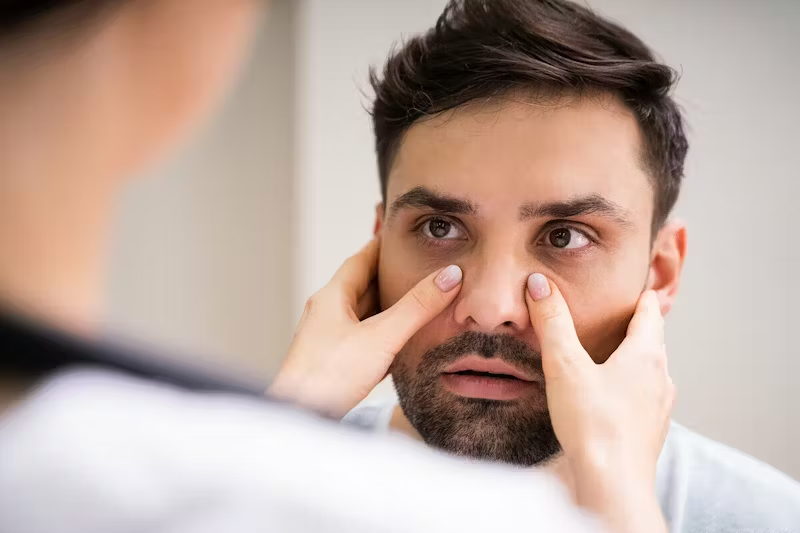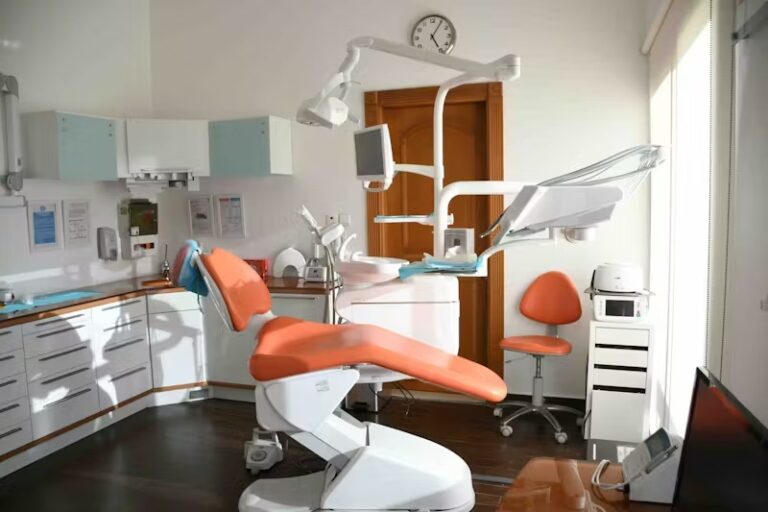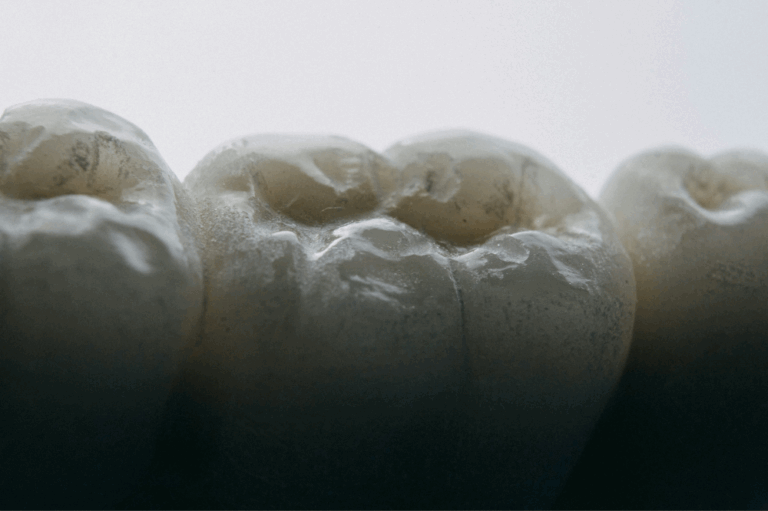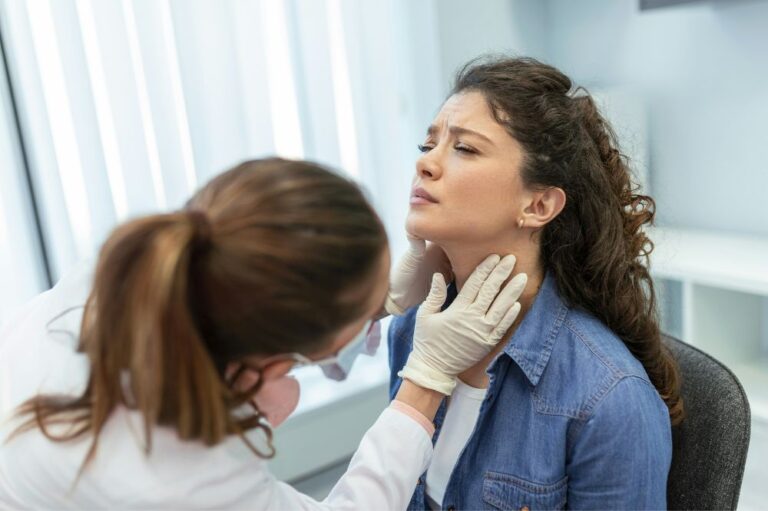Airway Dentistry Explained: How Breathing Impacts Oral Health
Airway dentistry is a newer branch of functional dentistry focused on restoring optimal breathing patterns. The basic premise is that oral structures influence your breathing — affecting airflow, sleep quality, and overall health.
By understanding the link between how you breathe and how you feel, airway-focused dentists can identify issues that contribute to sleep disorders and breathing dysfunction. They can then offer solutions to improve your breathing and overall well-being.
Why Your Airway Matters More Than You Think
An airway dentist looks beyond the teeth and mouth, evaluating the oral cavities, nasal sinuses, and air passages that make up your airway anatomy. This is to identify any structural or functional issues affecting your breathing.
Important note: When you’re not breathing correctly, it affects your dental health and overall wellness.
Your tongue, jaw position, and palate shape all matter when looking at the difference between a clean airway and a narrow, obstructed one. A small jaw can be the reason why you’re snoring, for example, as it can crowd your tongue and reduce space in your throat.
Airway dentistry also involves identifying conditions that affect breathing, including sleep disorders like sleep apnea, and how to restore functional breathing. Unlike traditional dentistry, which prioritizes things like cavity prevention and gum health, airway dentistry evaluates and addresses breathing-related concerns.
Airway-centric dentistry is a growing field that fits into the biological dentistry model for a more holistic approach to your oral health, overall health, and sleep habits.
Signs That Your Airway Might Be Struggling
When your airway isn’t functioning well, the signs often show up subtly, both during the day and when you’re asleep. Here are some of the most common symptoms in adults:
- Mouth breathing or noisy breathing
- Snoring
- Feeling tired after a full night’s sleep
- Decreased focus and memory
- Headaches
- Chest congestion
- Teeth grinding (bruxism)
- Dry mouth or sore throat when you wake up
- Chronic cough
- Jaw or facial pain (as a symptom of teeth grinding or clenching)
The signs can be similar in children, but here are a few extra ones to watch for if you’re worried that your child isn’t getting high-quality sleep:
- Restless sleep
- Bedwetting beyond the typical age
- Chronic allergies or nasal congestion
- Difficulty focusing in school
- Developmental delays
- Behavioral issues (e.g., hyperactivity and inattention mimicking ADHD)
How Dentists Identify Breathing Problems
Airway-trained dentists use a combination of tools to examine your oral cavity, jaw structure, and airway function to detect breathing problems that may impact your overall health. These may include:
- Dental cone beam computed tomography (CBCT) scans: These provide detailed 3D x-rays of the jaw, sinuses, and airway before a diagnosis of sleep disorders like obstructive sleep apnea (OSA).
- Physical airway exams: Used to assess the size and shape of your tongue, tonsils, and the soft tissues of your palate for a better idea of nasal passage health.
- Dental exams: To look for evidence of teeth clenching, clicking, or grinding, and the health of your gums and cheeks.
- Sleep study referrals: In some cases, your dentist may recommend a sleep study to examine breathing patterns or sleep disruptions throughout the night.
This integrative approach is the best way to address the root of your airway issues and develop targeted, long-lasting solutions.
What Do Airway-Focused Dentists Do?
Airway-focused dentists work to improve breathing by addressing the structural and functional issues restricting your airflow. As with any functional approach, treatment is highly personalized.
While CPAP machines are a common recommendation following a sleep apnea diagnosis, they’re not a typical approach that airway dentists promote.
Note: Biological dentists will tell you that CPAP therapy, or continuous positive airway pressure, doesn’t treat the root cause of sleep disorders!
Here are a few common treatment options and CPAP alternatives:
- Myofunctional therapy: Targeted exercises retrain the tongue, lips, and facial muscles to fall into the best positions for nasal breathing.
- Mouth guards: Primarily designed to protect your teeth from nighttime grinding or clenching.
- Custom oral appliances: Mandibular Advancement Devices (MADs) shift the lower jaw forward during sleep to open the airway. Daytime-Nighttime Appliances (DNAs) stretch the upper arches of your teeth to give your tongue more room and unblock the airway.
- Orthodontic/dental care: Expanders, braces, and bite correction devices can help correct jaw structure, nasal airways, and tongue space that may be behind breathing issues.
- Nasal breathing support: Nasal strips and dilators can help relieve congestion and support proper nasal breathing.
Airway dentists sometimes collaborate with other healthcare providers, like ENT doctors, sleep specialists, or physical therapists, for a more comprehensive approach.
Who Benefits From Airway Dentistry?
Airway dentistry offers targeted solutions for those struggling with breathing-related issues linked to oral structure and function. Both adults and children can benefit from airway-focused care, especially when presenting with symptoms that affect their day-to-day lives.
Adults
Adults experiencing breathing-related symptoms may find relief through airway dentistry’s tailored treatments. People who may benefit include:
- Chronic snoring or sleep apnea sufferers.
- Those experiencing daytime fatigue or morning headaches.
- People who struggle with CPAP machines or prefer a non-invasive alternative.
- Individuals with jaw pain from bruxism or temporomandibular joint (TMJ) disorders.
- Those with dry mouth that is affecting their sleep and oral health.
Children
Children with breathing or sleep challenges benefit from early airway-focused care for healthier growth and development. Sleep disordered breathing, for example, may be linked to airway and facial development as a child. Signs to watch for include:
- Kids with persistent mouth breathing or noisy, restless sleep.
- Children showing behavioral signs that mimic ADHD.
- Those needing early orthodontic treatment.
- Children exhibiting any developmental delays due to a lack of sleep.
How Airway Health Affects the Whole Body
Good airway health is about more than just breathing easily. It plays a key role in your body’s overall wellness. When the airway is compromised, your whole-body health is compromised. Here’s how better airway health makes a difference:
Sleep & Brain Function:
- Better sleep. Quality sleep is foundational for good health and a better quality of life. Airway dentistry helps connect the dots between dental health, breathing, and sleep, while addressing signs and symptoms of common sleep disorders.
- Better cognitive health. Airway obstructions can disrupt restful sleep, limiting the deep, restorative sleep stages your brain needs to function. The lack of restful sleep can lead to daytime drowsiness, trouble focusing, and memory problems.
Oral & Sinus Health:
- Improved oral health. Healthy airway function reduces the risk of dry mouth, tooth decay, and gum disease. Correcting airway issues can also decrease teeth grinding and jaw pain.
- Healthy mucous drainage. Proper airway health supports normal mucous drainage. Without it, you’re more likely to experience sinus infections, ear infections, and bad breath.
Stress, Pain, & Energy:
- Reduced stress and anxiety. Chronic airway issues can trigger the body’s stress response and worsen sleep problems that add to oxidative stress levels. Over time, this can impact your brain chemistry and lead to mood swings and irritability.
- Less pain and more energy. Airway problems can cause muscle tension, headaches, and jaw pain. Chronic oxygen deprivation also leads to fatigue and lower energy levels throughout the day.
Immune, Metabolic, & Heart Health:
- Improved immune function. Poor airway health can weaken the immune system. Interrupted sleep and low oxygen levels reduce the body’s ability to fight infections, especially at the adenoids, making you more prone to illness.
- Stronger metabolic health. Airway-related sleep disruptions affect how the body regulates blood sugar. The disruptions increase your risk of insulin resistance, weight gain, and type 2 diabetes. Poor breathing patterns can also mess with hormones that control appetite.
- Better heart health. Sleep apnea and other chronic breathing issues increase the risk of high blood pressure and heart disease. When breathing is interrupted, oxygen levels drop, forcing the heart to work harder and raising cardiovascular risk over time.
Growth & Development:
- Healthier development outcomes. In children, airway obstructions can limit oxygen delivery during critical growth periods. This can cause delays in physical growth, cognitive development, and even behavioral challenges.
FAQs
Ready to Breathe Better?
Conventional dentists often overlook functional breathing, but it is essential for good dental health and sleep. Airway dentistry is a growing part of the functional medicine model — treating the root causes instead of applying a band-aid approach.
If total body wellness is your goal, schedule an appointment with Rejuvenation Dentistry. Our biological dentistry clinic identifies the underlying causes of oral health problems for sustainable, whole-body health.

Dr. Gerry Curatola
Dr. Gerry Curatola is a renowned biologic restorative dentist with more than 40 years of clinical practice experience. He studied neuroscience at Colgate University and attended dental school at the New York University (NYU) College of Dentistry where he now serves as Adjunct Clinical Associate Professor in the Department of Cariology and Comprehensive Care.

Dr. Gerry Curatola
Dr. Gerry Curatola is a renowned biologic restorative dentist with more than 40 years of clinical practice experience. He studied neuroscience at Colgate University and attended dental school at the New York University (NYU) College of Dentistry where he now serves as Adjunct Clinical Associate Professor in the Department of Cariology and Comprehensive Care.






